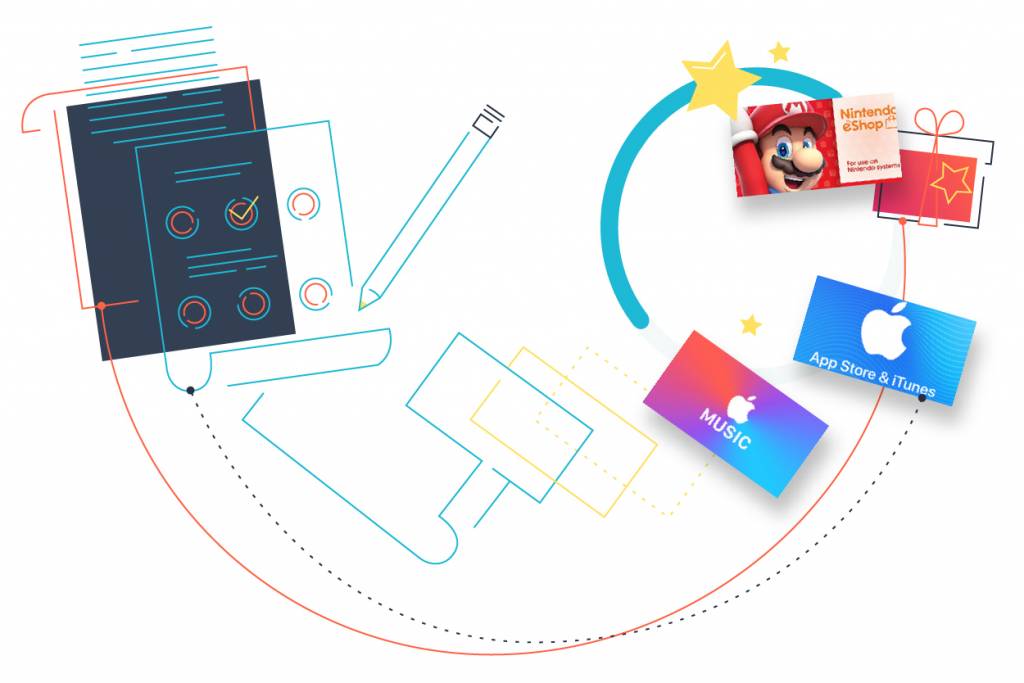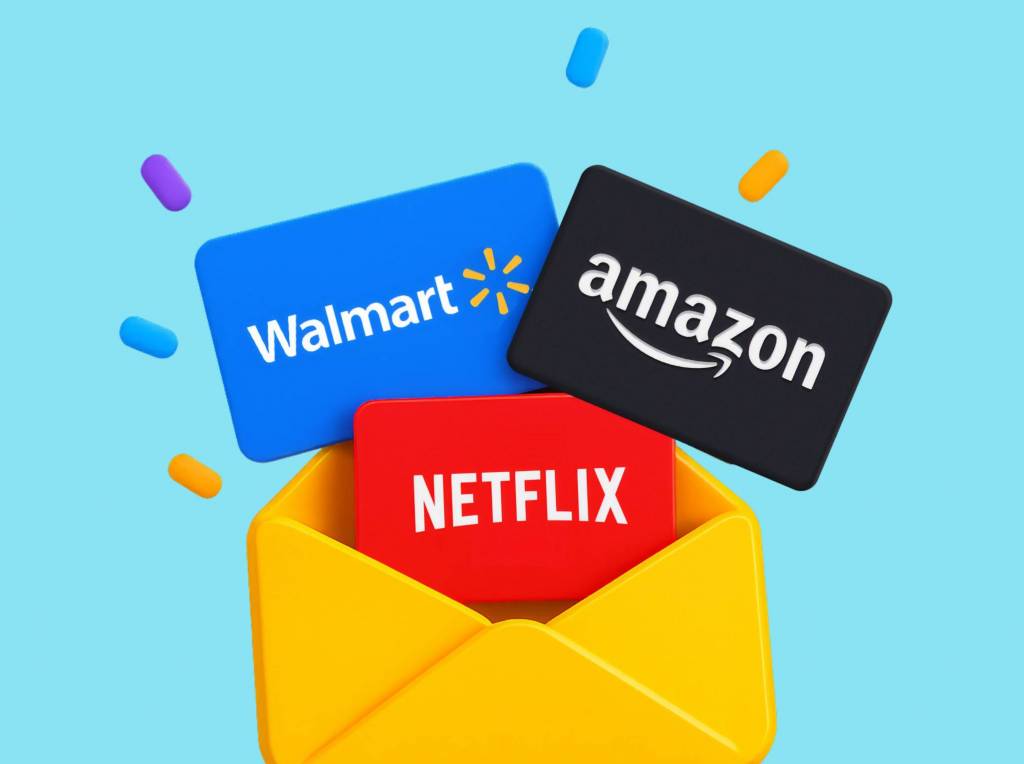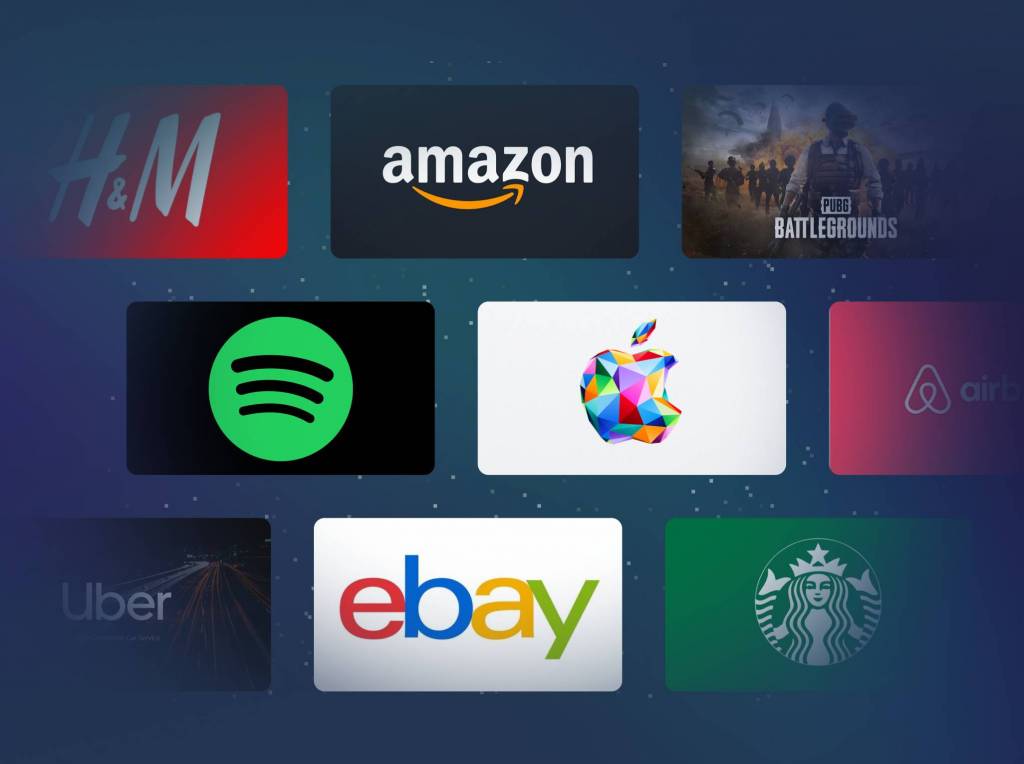Selecting the right incentive ideas for research participants can make or break a project.
It’s also a no-brainer strategy.
According to a research on surveys and field studies published in BMC Medical Research Methodology, the secret to skyrocketing response rates is through the use of incentives. And the more liquid and personalized, the better.
However, incentivizing the right audience to respond to surveys remains an impediment to collecting accurate data. It’s a common challenge that’s true across the industry spectrum, from small digital consumer research teams to large nonprofit organizations.
So, which incentives will best encourage your target survey audience to respond?
First, features of your audience must be factored in when selecting a survey incentive.
For instance, the profession and status of the survey audience can determine the type of incentive they consider valuable, as well as where they live, which will determine how you can best deliver them the incentive.
Without a doubt, incentives remain the best way to encourage survey participation. But, as we’ll review, not all incentive ideas are made equally. In today’s hyper-connected, mobile-first world, some ideas clearly provide more holistic benefits for the life of an international research project.
In this article, we will review the most popular incentive ideas for research participants, focusing on the strategies that have proven to be the most effective over the past few years.
Let’s dive in.
Well-planned incentives: Understanding the main survey formats
Many researchers find rewards and incentives complex.
In selecting the right incentive to use, you would first have to consider:
- How to facilitate the transfer of your incentive within declared time frames
- Using a transparent system that helps track the incentives dispersed to participants
Then, apart from managing a distribution system, researchers would have to build a format for their study.
Incentives for research are commonly distributed in three types of formats:
- One-off survey prizes: The participant gets rewarded before or after submitting each response.
- Points-based prizes: Participants accumulate points for their activities over a period of time. The points must get to a value to be redeemable.
- Sweepstakes rewards: A fixed amount of rewards is set for participants. Winners can be randomly drawn or selected based on the time of participation.
The great news is that all of the incentives we’ll cover can be used in any of these formats.
This includes innovative solutions, such as sending airtime directly to survey participants’ mobile phones.
Ultimately, which incentive will work best for your project will come down to exactly how you want to engage with your target market.
[Looking to get a better understanding of smart incentive ideas for research participants? Talk with our support team to learn how our API enables gift cards and airtime rewards to be easily distributed across the world.]
10 incentive ideas for research participants: From the practical to the innovative
1. Digital Products
Courses, ebooks, audiobooks and webinars are easy to make and deliver.
Depending on the audience of your surveys, a digital product can be an enticing reward. An instance would be providing a resourceful ebook on study tips for a survey targeted at college freshmen.
Digital products don’t require shipping fees and extensive tracking. In a couple of clicks after completing the survey, participants can enjoy their reward.
2. Physical Products
With the ease of online deliveries, products are more mobile than ever.
Products as incentives can generate improved data collection — and they are particularly helpful when testing market acceptability of a beta-stage product.
Your survey rewards can be a sample product to which survey respondents are granted exclusive access, a product customized with the user’s desired information, or a form of souvenir.
Pens, flash drives and flasks are used in physical surveys to great success.
The cost of delivery and the value of the product itself might, however, be a significant cost for your business.
3. Free Shipping For Paid Goods
Have a new product you want to test?
Attaching a free shipping offer can maximize the responses you get to your surveys.
Reducing the cost of shipping can be very valuable to the customer, particularly if it is over long distances.
While customers pay for the goods, you let them know you will handle the delivery fees.
4. Tickets For Events or Meetups
Is your survey targeted at people who might be interested in an event you are holding?
That could be an incentive for a survey.
If you will host physical or virtual events, you can offer participants discounted free tickets to attend the event.
Residents of a local area can be incentivized by the presence of a local celebrity.
Industry participants can find an invitation to a workshop on industrial trends rewarding.
Workers in the automobile manufacturing industry can be motivated by an invitation to an exclusive session on the future of electric cars.
5. Offer Coupons for Rebates
Coupons or discount cards or codes are attractive rewards for most survey participants.
A coupon can be downloaded, printed, and used at a retail store, while coupon codes can be inserted for discounts on most e-commerce platforms.
6. Cryptocurrency
Many people today would be fine with accepting crypto-assets.
For many of them, surveys are an easy way to do so.
Cryptocurrency is often used for incentives. Participants can also be paid instantly, whether all participants are rewarded at once or if it is done through a sweepstake reward system.
7. Time-Limited Upgrades or Extended Trials
Subscription-based businesses can offer time-limited upgrades or extended trails to users for partaking in a survey.
Upgrades for responding to A/B surveys can drive response rates up.
8. Points for Apps and Games
Most games have items available for purchase to progress in the games, while mobile application users can also have points to purchase additional features.
Since ads are incentivized with some points, the idea can also be successfully applied with surveys.
While this might work with more general surveys, researchers conducting niche surveys might want to specially select apps they work with.
A research exploring the increase in productivity by a scheduling app can be incentivized with points.
9. Gift Cards
Alongside cryptocurrency, gift cards are one of the most appealing assets to many research participants today.
Gift cards are valuable to many people because of their high liquidity. They can be used for online purchases, to pay in physical stores, and can be exchanged for money or cryptocurrency on peer-to-peer exchanges.
Furthermore, gift cards can be sent easily across the globe in a matter of seconds.
The recipient can then decide whether to print it or use it digitally with one of the many popular retailers that accept them.
10. Airtime Rewards
Airtime top-ups are a popular means of rewarding research participants across the world, especially for people living in emerging markets in Africa, South Asia and Latin America.
While setting up an airtime rewards may appear difficult, there are now lots of tools out there that make integration easy.
Today, an airtime API can be set up in a day to enable seamless integration for market researchers to disperse airtime awards directly to participants’ mobile phones.
They don’t even need internet access to receive and use this reward, and the ubiquity of mobile phones means that this type of reward is very popular for incentivizing hard-to-reach places.
The problem with most survey incentives
Survey incentives are rewarding, but many of them can be difficult to use at scale and with great success.
Market researchers run into issues with dispersing rewards or measuring them to minimize waste.
In physical, online, or hybrid surveys, some common problems with rewards include:
Wasted Expenses on Unclaimed Rewards
Tracking survey incentives eliminates the waste resulting from unclaimed rewards.
For many research participants, the best reward for participating is the impact of the research.
Some others might not know how to claim the reward, or they might consider it too much trouble.
Thus, a massive chunk of the researcher’s budget might go down the drain when the participant leaves the goods unclaimed, unbeknownst to the researcher.
An accurate tracking system can eliminate most waste, as rewards can be retracted when left unclaimed for a particular length of time.
Logistics Complexities
Delivering products requires complex logistics and expenses.
The cost of moving goods around and the price of the goods could make it too expensive. In some instances, the cost of transporting the goods could cost more than the product.
Also, the product might be difficult to send to certain regions of the world.
The Problem of Anonymity, Confidentiality, and Research Participant Privacy
Institutional Review Boards (IRBs) stipulate that research participants should generally be anonymous.
A reward system that requires requesting their bank accounts or addresses could expose the research participants’ identity.
Apart from breaching the best practice rules, such a reward system can disincentivize surveys.
Many research participants would feel uncomfortable with exposing sensitive data.
Time Consuming
For both researcher and participant, rewards can be time-consuming and stressful.
Rewards are more enticing when they can be delivered immediately, and for the researcher, when it is easy to offer and replicate for others in little time.
Compare the ease of a gift card with the stress of organizing a rewarding event for instance.
Expensive
Rewards can be too expensive to rationalize.
In some instances, the reward is affordable for the researcher, but the process of getting it across to the recipient could be budget-wrecking.
Unclaimed or incomplete claiming of rewards also lead to more expenses.
Gift Cards and Airtime Rewards: Easy, fast and secure ways to generate survey responses
Ideal incentives for research participants must be quick, valuable and liquid.
For the researcher, it should also be easy to track, easy to prepare, and affordable, thus freeing up more time, funds, and energy for the research team.
This is why gift cards and airtime rewards are ideal for incentivizing research surveys.
They are:
- Easy to offer
- Delivered in seconds
- Affordable
- Liquid — can be readily exchanged for cash or value
- Measurable and trackable
- Borderless
- Compliant to regulation in almost all countries
- Easy to claim without divulging sensitive data
Gift cards, for example, are increasingly instrumental in getting more responses from surveys, with the industry predicted to hit 16.2% growth every year from 2020 to 2027.
As mobile phones become ubiquitous and the demand for gift cards rises, gift cards have become an excellent incentive idea for researchers.
Transparent, fast, and affordable gift cards as incentives can easily be set up with the aid of a gift card API. An effective API like the one offered by Reloadly enables the transfer of gift cards to many numbers simultaneously.
Recipients, upon receiving gift cards to their mobile phones, can also transfer them via text messages.
Airtime as rewards is another excellent incentive idea your organization can explore.
In many countries, especially in Africa, sending airtime is like sending cash without going through complex processes.
Jan Schenk, CEO at Ikapadata, has often used airtime as incentives and observes that “it makes little difference whether you give someone cash or airtime because people spend so much money on airtime anyway that if you give them the airtime it feels like real money.”
Setting up an airtime widget and/or gift card API
Reloadly enables researchers to introduce gift cards and airtime rewards to survey projects in little time.
Through an airtime widget, you can easily set up an incentive system for survey participants via WordPress or any other content management system.
With Reloadly’s plug-and-play solution, researchers have access to over 750 telcos in 140 countries, all in one widget set up with zero code.
Even without any technical knowledge, you can set it up in one day. (And if you have any questions, you can easily set up a demo with us.)
Reloadly also offers micropayments as low as $0.50 cents at zero cost to the customer. In addition, hundreds of payments can be made simultaneously.
Through your Reloadly dashboard, you can manage wholesale discounts for over 750 mobile operators with transparent foreign exchange rates in over 100 currencies.
Similarly, Reloadly enables you to send gift cards through our API to 24 countries in 4 regions around the world, with a catalog of over 150 gift card brands to choose from.
Final Thoughts
Reloadly is helping research companies and nonprofit organizations improve their research through innovative rewards systems.
Need the perfect complement to help you get people to answer your surveys? Contact us to discover how you can use Reloadly to integrate mobile airtime and gift cards services for research incentives.



